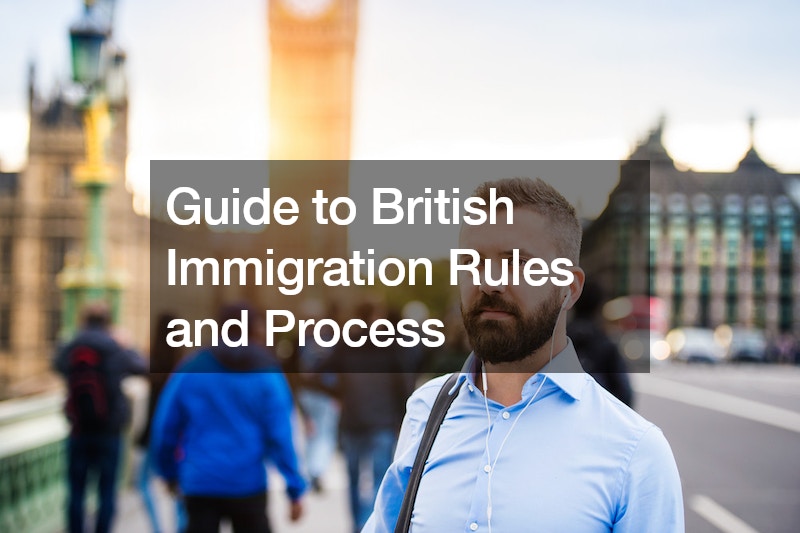
Navigating the British immigration system can be complex and daunting, especially with the ever-evolving rules and processes. Whether you’re looking to reunite with family, pursue work opportunities, or study in the UK, understanding the immigration rules and process is crucial. In this comprehensive guide, we’ll break down the key aspects of British immigration rules and the application process.
Understanding British Immigration Rules:
The British immigration system is governed by a set of rules and regulations aimed at controlling who enters and stays in the country. These rules cover various categories, including family visas, work visas, student visas, and more.
It’s essential to familiarize yourself with the specific rules that apply to your situation before beginning the application process.
Key Points from the Latest Changes:
The Home Secretary recently announced significant changes to the UK immigration rules for 2024. These changes are part of a five-point plan aimed at reshaping family reunification and skilled migration to the UK. Some of the key points from these changes include:
Social Care Workers: Social care workers will no longer be allowed to bring dependents, including partners and children, on their visas. This aims to reshape family migration dynamics within the social care sector.
Skilled Worker Visa Salary Increase: The minimum salary required for sponsorship under the skilled worker visa is set to increase substantially, with exemptions for health and care workers.
Shortage Occupation List: There will be significant revisions to the shortage occupation list, limiting the scope of jobs eligible for sponsoring overseas workers below the baseline minimum salary.
Spouse or Partner Visa Minimum Income Increase: The minimum income required for sponsorship of spouse or partner visas will gradually increase, marking a substantial adjustment in the financial criteria for family reunification.
Graduate Visa Review: The Graduate Visa, an unsponsored work permit for overseas graduates of British universities, will undergo a comprehensive review, potentially leading to alterations in its structure and eligibility criteria.
The Immigration Process:
The process of immigrating to the UK typically involves several steps, including:
Determining Eligibility: Before applying for a visa, you must determine your eligibility based on the specific immigration rules that apply to your situation. This may involve meeting certain criteria related to family relationships, employment, or study.
Selecting the Right Visa Category: Once you’ve determined your eligibility, you’ll need to choose the appropriate visa category for your circumstances. This could be a family visa, work visa, student visa, or another type of visa depending on your situation.
Gathering Documentation: The next step involves gathering the necessary documentation to support your visa application. This may include proof of identity, financial documents, employment letters, and any other supporting evidence required by the immigration authorities.
Completing the Application Form: You’ll need to complete the relevant visa application form accurately and honestly, providing all the requested information and documentation. Any errors or omissions could delay or jeopardize your application.
Submitting the Application: Once you’ve completed the application form and gathered all the required documentation, you can submit your application to the appropriate immigration authorities. This may be done online or through a visa application center, depending on the type of visa you’re applying for.
Attending Biometric Appointment: In some cases, you may be required to attend a biometric appointment to provide your fingerprints and have your photograph taken as part of the application process.
Waiting for a Decision: After submitting your application, you’ll need to wait for a decision from the immigration authorities. This can vary in processing time depending on the type of visa and other factors.
Receiving a Decision: Once a decision has been made on your application, you’ll be notified of the outcome. If your application is approved, you’ll receive your visa, allowing you to enter and stay in the UK for the specified period.
Seeking Guidance from an Immigration Consultant:
Given the complexity of the British immigration system, many applicants choose to seek guidance from an immigration consultant for UK citizenship. These professionals are well-versed in the immigration rules and processes and can provide valuable assistance with visa applications, documentation, and other aspects of the immigration process. Working with an immigration consultant for UK citizenship can help streamline the process and increase the chances of a successful outcome.
Conclusion:
Navigating the British immigration rules and process requires careful attention to detail and an understanding of the specific requirements that apply to your situation. By familiarizing yourself with the rules, gathering the necessary documentation, and seeking guidance from an immigration consultant if needed, you can increase your chances of a successful visa application and achieve your immigration goals in the UK.
.




